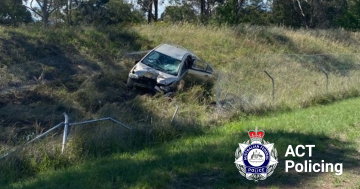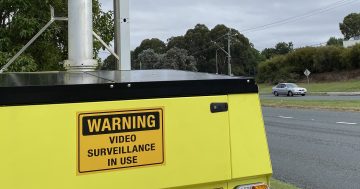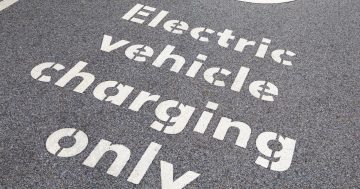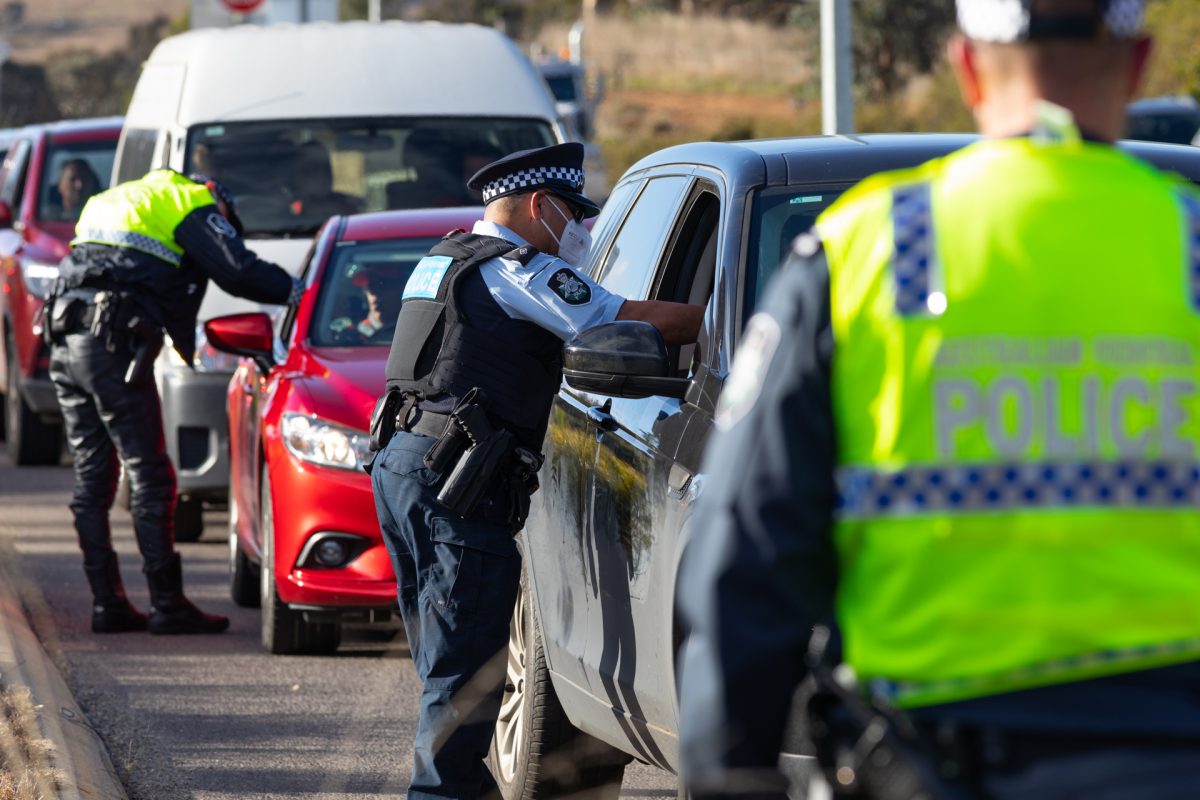
Under new laws, ACT Policing officers will be able to conduct roadside tests for cocaine. Photo: Michelle Kroll.
Drivers choosing to drink, take drugs and then get behind the wheel will face tougher penalties under new laws introduced in the ACT.
The Legislative Assembly passed the Road Safety Legislation Amendment Bill 2023 on Wednesday (15 May) to create a new combined drink and drug driving offence, as well as increase penalties, allow for fines to be issued for first-time low-range drink drivers and for ACT Policing to conduct roadside testing for cocaine.
Transport Minister Chris Steel said this was about sending a “clear message” that drink or drug driving would not be tolerated on Canberra’s roads.
“If you choose to drive while under the influence of drugs or alcohol, you will face an increased penalty that reflects the severity of the risk to other people,” he said.
“These new laws will make our transport penalties swifter, stronger and fairer, and our roads safer.”
Mr Steel explained penalties for drink driving in the ACT hadn’t been updated for the past two decades, nor for drug driving since it was made an offence in 2011.
Now court-ordered penalties have been increased up to $12,000 and an 18-month licence suspension for high-range level 4 drink driving for a first-time offender.
Repeat drug driving offenders can now incur an $8000 fine, six months’ imprisonment, and a 12-month licence suspension.
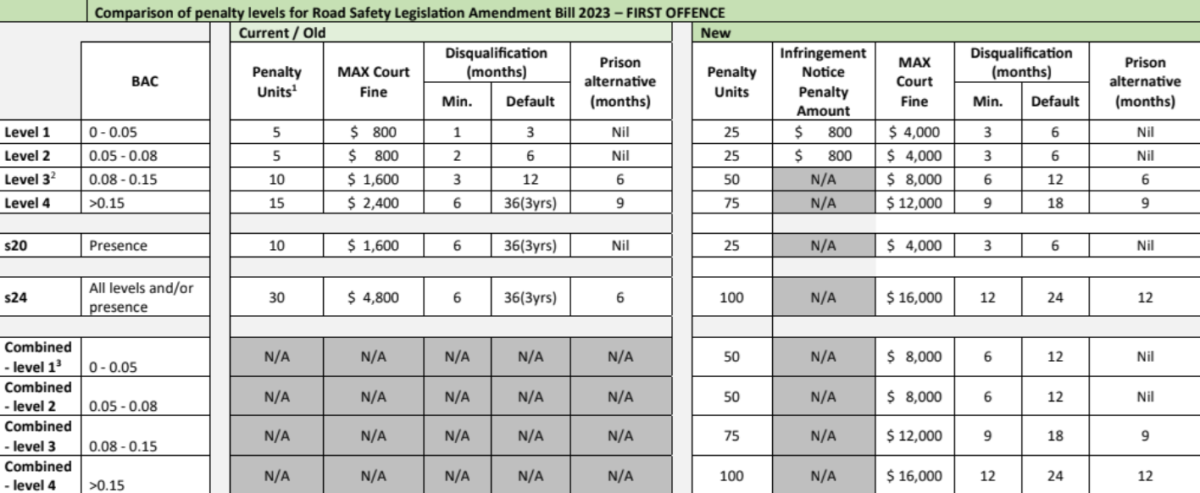
Summary of penalties for first offences for drink, drug and the new combined drink-drug driving offence. Photo: TCCS.
“We’re sending a very clear message to the community that choosing to drive under the influence of drugs or alcohol is a choice that is not tolerated on ACT roads,” Mr Steel said.
“When, not if, you are caught, you will face a penalty that reflects the severe and deadly risk created for other road users.”
First-time low-range drink drivers can receive an immediate $800 fine and six-month loss of licence rather than going to court.
ACT Policing can still choose to lay charges.
Research has shown a driver with a blood alcohol content (BAC) just above the 0.05 limit is twice as likely to be involved in a crash. This increases to 25 times if a driver has a high-range BAC.
A new combined drink and drug driving offence has also been introduced.
Mr Steel said this behaviour posed a “very real but completely avoidable danger” for other motorists.
“The new offence reflects the research that shows that a fatal crash is 23 times more likely when a person is under the influence of both alcohol and drugs in combination,” he said.
“Penalties for the new combined offence were intentionally designed to significantly exceed those for separate drug or alcohol driving offences.”
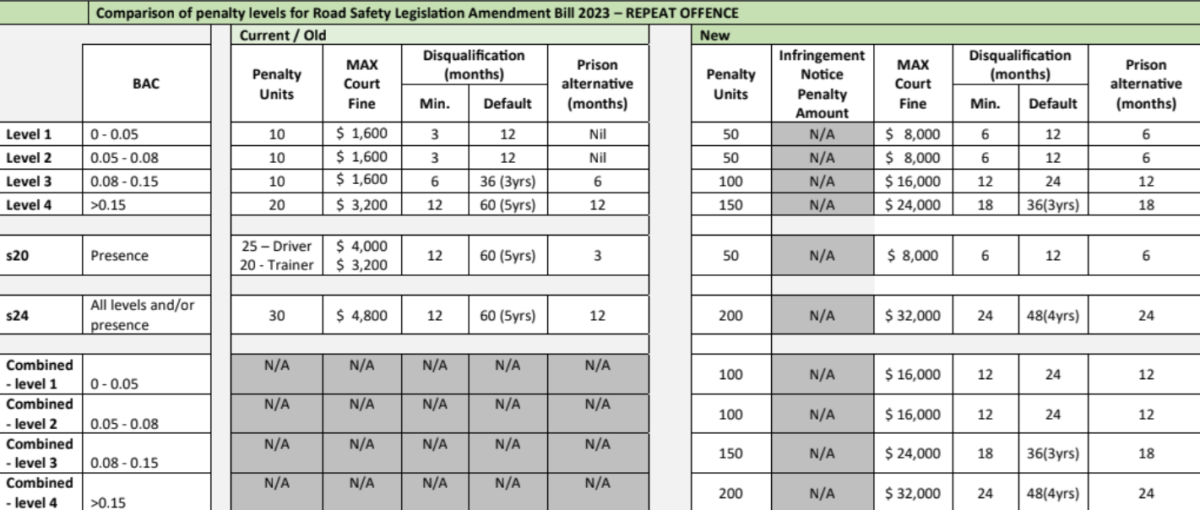
Summary of penalties for repeat offences for drink, drug and the new combined drink-drug driving offence. Photo: TCCS.
The maximum penalty a court can impose on a repeat drink and drug driving offender (where BAC exceeds 1.5 or level 4) is up to $32,000 and 24 months imprisonment, along with a four-year licence disqualification and the requirement for an alcohol lock to be installed in an offender’s vehicle.
Roadside testing has also been expanded to include cocaine, which is the second-highest illicit drug used in the ACT (after cannabis).
The new crimes and penalties will begin within the week.













